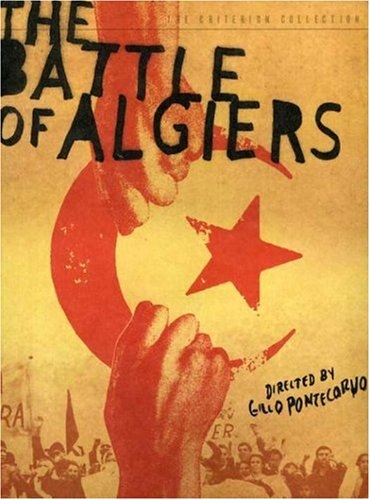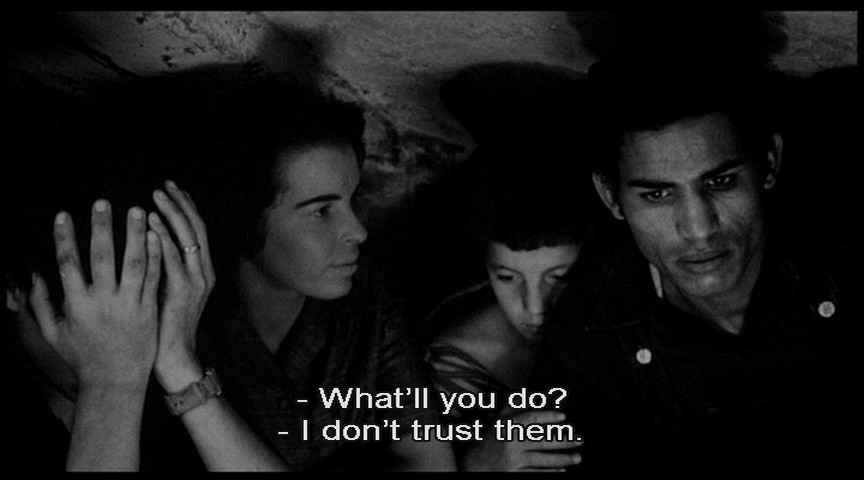The Battle of Algiers: “I don’t trust them.”
 This is a riveting scene from Gillo Pontecorvo’s masterpiece, The Battle of Algiers. The woman asks the man, “What are you going to do?” She is talking about the French colonial soldiers and police officers surrounding their apartment, placing explosives. He says, “I don’t trust them.” This is a scene from the late 1950s, dramatized respectfully by Pontecorvo in 1966. This is a scene that is still relevant today—as it could be played out here in the 21st century in Tunisia, or in Egypt—or in Algeria all over again…
This is a riveting scene from Gillo Pontecorvo’s masterpiece, The Battle of Algiers. The woman asks the man, “What are you going to do?” She is talking about the French colonial soldiers and police officers surrounding their apartment, placing explosives. He says, “I don’t trust them.” This is a scene from the late 1950s, dramatized respectfully by Pontecorvo in 1966. This is a scene that is still relevant today—as it could be played out here in the 21st century in Tunisia, or in Egypt—or in Algeria all over again…
What stands out for me in this scene are composition of man, woman and child. The French colonials are fighting a whole, unified, youthful people—not some macho, detached “cell” of blokes. What is tempting to ask might be, “Why can’t our youth here in the United States be so committed?” The first part of the complex answer should include the fundamentals. One big part here is that the Algerian youth were fighting in their land. America—especially 21st–century North America has nothing like that ferocity of identity for geography and heritage. It’s you know, like, whatever…
It might be tempting to say that the American psyche—especially those of the ‘traditionally oppressed’—is unable to produce such resolve—especially in a world more demanding and more stressful—and more warlike than America in the 1960s. It’s a typical white liberal thing—for white liberals of all skin colors—to beat up on one’s self. So perhaps a gentle reminder of Franz Fanon, an émigré to Algeria from Martinique—and his poetical and historiographical book Black Skin, White Masks might help with perspective.
Fanon’s book, a classic, was regarded by the younger me as so basic and elementary that it was not ever found on my shelf. But now, in a world ruled by Kanye West and with my children running around, I need to reconsider. It is probably a cliché to whine about why it’s so pathetic that Fanon’s mid-20th century observations are still so damn relevant today. So let’s not… What may be more interesting is to watch something like “When lived experience collides with the myth of a post-feminist world” by Emily Maguire and see both sexism and racism as too easily interchangeable in her elegant framework of locution.

